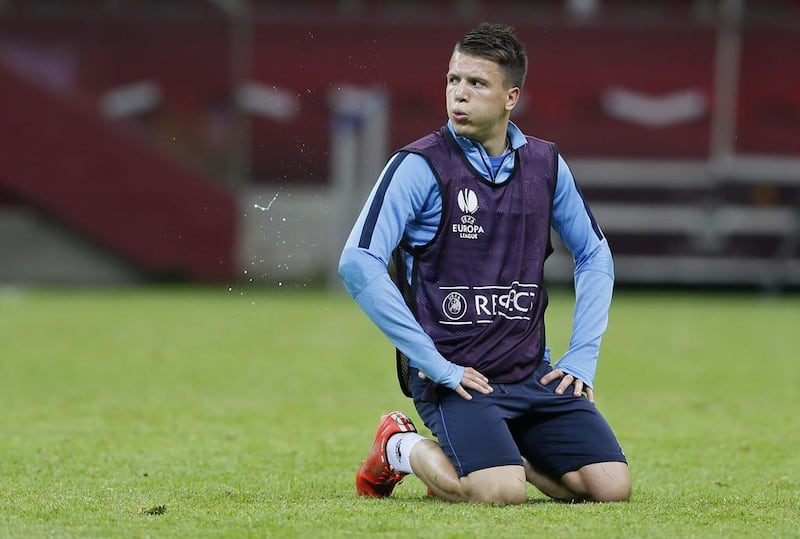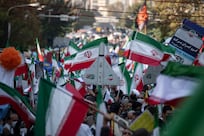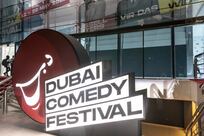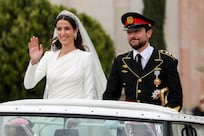“Football and politics probably don’t go together well,” said Dnipro Dnipropetrovsk’s 33-year-old captain, Ruslan Rotan.
“At least that’s my opinion. Football is a holiday for the people primarily. The trophy is the most important thing. With the war in the east, people are deprived of emotions. There is chaos but maybe if we win we will give some joy to those people.”
From a Ukrainian point of view, that is the story of Wednesday night’s Europa League final: Dnipro’s journey to meet Sevilla has been remarkable and there is a sense of Ukraine uniting behind them.
For Dnipro, very much the third side in Ukraine, to win the Europa League would be a statement. Who you are probably conditions exactly what that statement would be but, at the very least, it would offer a sense of pride and self-belief to a battered part of the country.
Dnipropetrovsk, which was a closed city in Soviet times, the centre of the arms and space industry, lies about 240 kilometres west of the front line of the continuing conflict between Russian-backed separatists and Ukrainian troops.
Dnipro have played all home Europa League ties about 390km to the north-west in Kiev.
RELATED:
Feature: Carlos Bacca: Sevilla's rags to riches striker on the verge of Europa League history
Preview: Radamel Faclao heroics, Chelsea triumph: The last five Europa League finals
“We have been flying a lot,” coach Myron Markevych said. “Initially it was very difficult. Moreover few supporters were coming and we were playing in a big stadium and that depressed us a little bit.
“But then when we got in the quarter-final against Club Brugge there were a lot of supporters and in semi-finals against Napoli more than 60,000 spectators.”
Markevych, who replaced Juande Ramos as coach last May, has been a major factor in Dnipro’s progress.
At Metalist Kharkiv, his former club, he was noted for his attacking approach, but his Dnipro sides are solid and play on the break, always looking to use the pace of Yevhen Konoplyanka, the left-winger.
Konoplyanka, whose contract expires this summer and who has been linked with Liverpool and Tottenham, is one of 12 players in the Dnipro squad who came through the highly rated Dnipro Academy.
The academy was founded by the late Yevhen Kucharevskyi, the coach who led Dnipro to the second and last of their two Soviet league titles in 1988.
“When Markevych came to us, he said, ‘Guys, you have a very good team, but in a tactical way you’re too emotional’, and that’s what we had to work on,” Rotan said.
“He stopped those emotions, he gave us his tactical exercises and we became calmer and this helped us really, we gained some self-assuredness.
“I can’t tell you how, but it comes with every game. We became more balanced and we came to stop being influenced by alien factors.”
When Metalist, the club Markevych had led to second to break the Dynamo Kiev-Shakhtar duopoly, had financial difficulties, prompting his resignation last year, it was widely assumed that would be his last job; he had, after all, spent nine years dragging Metalist to that position.
But he was appointed at Dnipro to replace Juande Ramos and now, after a highly respected career managing Ukraine’s lesser lights, he stands on the brink of a first trophy in his career.
That, though, is only part of a much bigger picture.
“What is happening in the Donbass is not good for my country,” the midfielder Valeriy Fedorchuk said.
“We have always believed we are biggest friend with Russia. We will play for Ukraine because we represent our country.”
FOLLOW US ON TWITTER @NatSportUAE





